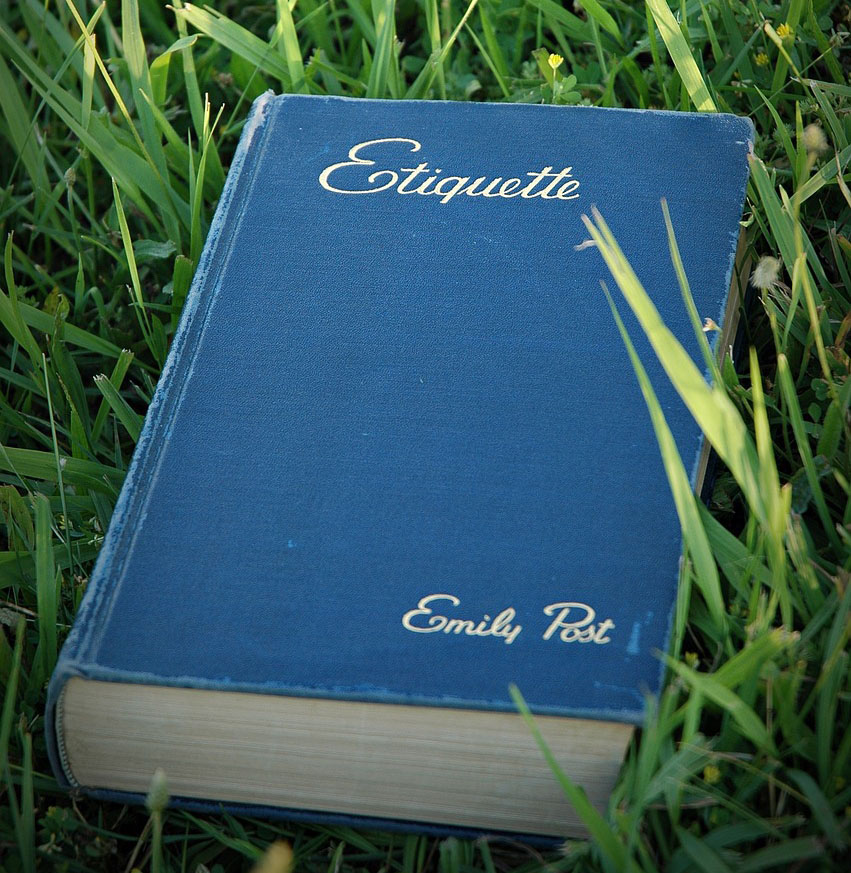The Tyranny of Etiquette

What kind of player do you think you are? Digital, occult, just-hoping-for-the-best? Did you know that there is another achievement to work towards now? The player of good etiquette.
It’s THE conversation of choice at tournaments now. In corners of cheaply-rented event halls, people mutter and judge the players they just played against, swiftly dividing them between those with “good manners” or “bad manners”. It doesn’t matter what else they did at the table, what matters is if they discarded with one hand or not.
This human behaviour does make sense to an extent. It is how a community builds what it expects from the people within it. The issue arises in that we in Europe apparently have an existential arbiter of these rules—Japan.
Those who have even a passing knowledge of the country (and may not have even stepped within a mahjong parlour) will dispense quips of wisdom about “how they do it in Japan.”

Sometimes this is done with all the best intentions. Lots of players are happy to have it pointed out that something should be done in another way because they want to fit in and do the right thing. The ugly side of this is that desire to conform can be weaponized and “etiquette” is now used against individuals and, sometimes, whole clubs.
I feel somewhat responsible for opening Pandora’s box. I have also banged on about how etiquette is important, but now I fear the depths we’ve taken to are not healthy and, ironically, not very polite to our fellow players.
Let’s also be honest with why these behaviour protocols developed in Japan; it’s not because they’re all inherently more polite than the rest of us. It’s because players were cheating, which is honestly the most rude thing anyone can do.
Cheating hasn’t been a massive issue for the West, partly because we’re a smallish hobbyist community and partly because we do not gamble. Hence, we haven’t developed all of the fine rituals to make slight of hand and other tricks difficult.
What we have to recognize is that while all players following standard socially-accepted protocols is something to aspire to, we can’t accidentally create obstacles for new player participation. The first thing many newcomers face is a complicated deal procedure where some of it goes anti-clockwise, other parts go clockwise, we take four “cards” at a time etc. I’m sure more than a few people have decided that if this is the way the game is, it’s too complicated. If we add more and more demands on newer players, we could find we’re taking the fun out of it.
And then, there are those who are using “etiquette” to lord some sort of superiority over others. They scoff and rail against those who won’t comply with “Japanese customs,” creating a division in our community that doesn’t need to be here.
The solution is compromise (isn’t it always!). Rather than dictate what a good custom is and couch it in a vague tenet of “respecting the game,” we need to educate why it is done in Japan the way it is and adopt those customs that make sense for us. Perhaps we even need to add our own tweaks to accommodate our unique cultures and quirks.
In support of etiquette, it is a common language we can all share to improve our enjoyment of the game. Let’s just make sure that the conversation we’re having is a positive one that seeks consensus. (Consensus is, after all, the Japanese way)
Have a question about mahjong etiquette and why we do it? Ask in the comments and we’ll try and do a thorough and informed follow up!
